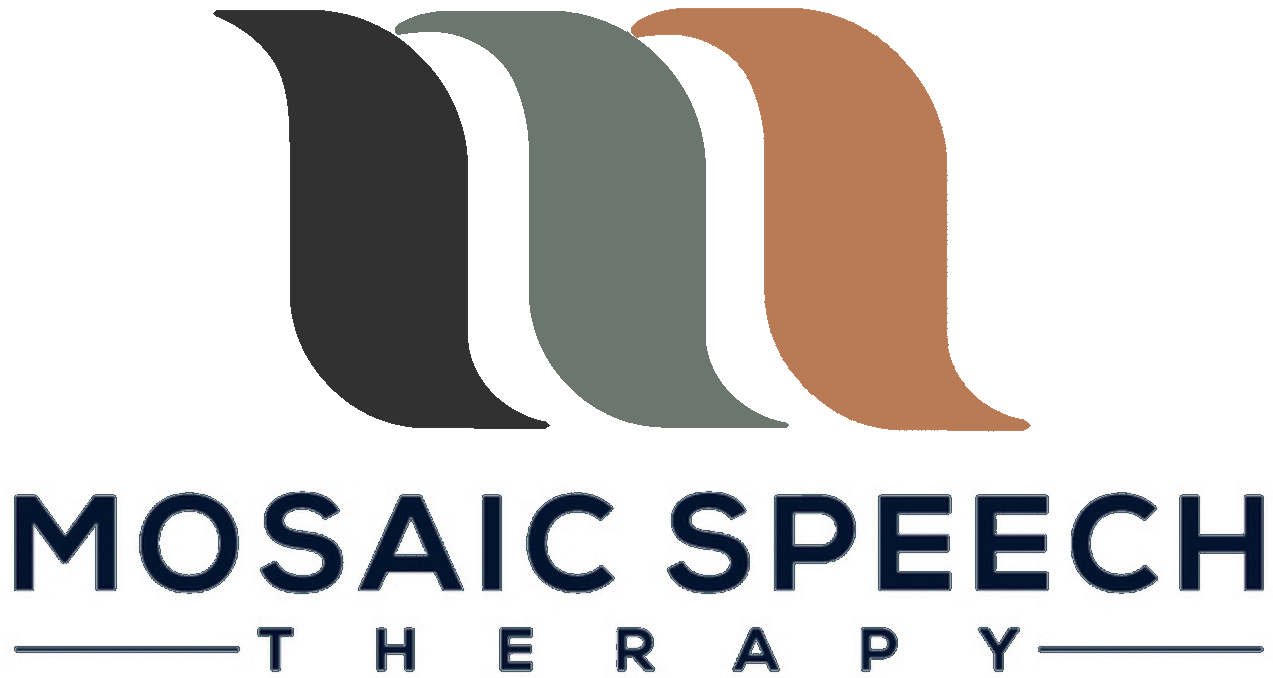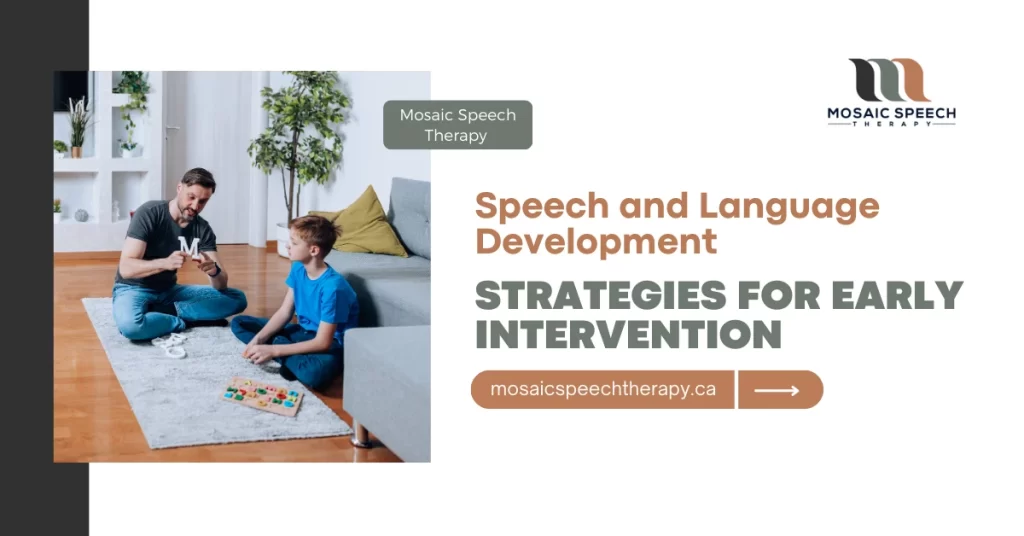Speech and language development are a critical part of a child’s cognitive and social growth. At Mosaic Speech Therapy, based in Edmonton, we specialize in enhancing both receptive and expressive language skills.
Our comprehensive programs target early intervention, providing strategies that promote communication proficiency at every stage of development.

Signs of Receptive and Expressive Language Delays
Receptive Language Delays:
- Difficulty following directions.
- Trouble understanding questions or vocabulary.
- Appears to ignore verbal instructions.
Expressive Language Delays:
- Limited vocabulary for their age.
- Difficulty forming sentences or retelling stories.
- Struggles with word retrieval or using appropriate words.
Strategies to Improve Receptive Language
Improving receptive language involves practice in understanding spoken language. Here are some strategies used by Mosaic Speech Therapy:
1. Interactive Reading
Encourage interaction during reading by asking open-ended questions and repeating key words to reinforce vocabulary.
2. Following Directions
Games like Simon Says or obstacle courses help children practice following verbal instructions in a fun, engaging way.
3. Labeling Objects
Narrate daily activities and label objects, actions, and emotions to boost understanding and language exposure.
4. Visual Aids
Use visual supports like pictures and charts to help children comprehend and reinforce spoken instructions.
5. Grouping Words
Teach categorization by sorting objects or pictures into groups (e.g., animals, foods), helping children learn related words.
Strategies to Improve Expressive Language
To develop expressive language, focus on building vocabulary and sentence structure. Here are effective strategies:
1. Modeling Rich Language
Use descriptive language when talking to your child. Expand on their simple statements to introduce more complex ideas and words.
2. Narrative Play
Encourage your child to tell stories about their day or activities using toys or props to enhance sentence formation and vocabulary.
3. Sentence Starters
Provide sentence prompts like, “I think…” to help your child practice forming more complex sentences.
The Role of Speech Therapy in Language Development
At Mosaic Speech Therapy, we offer personalized speech therapy programs tailored to each child’s needs. Our speech-language pathologists evaluate both receptive and expressive language abilities, working with parents to create a home-based strategy that reinforces our in-session work. Our therapy sessions:
- Incorporate play-based techniques that engage children in a natural learning environment.
- Use technology, including language apps and interactive activities, to motivate and track progress.
- Focus on practical outcomes that support academic and social success.
Why Early Intervention Matters

The earlier a child’s speech and language delays are addressed, the more effective the intervention. Waiting too long can affect social interaction, learning, and overall cognitive development.
Parents can take advantage of our early screening and intervention programs, ensuring their children receive the support they need at a crucial developmental stage.
Together, we can unlock your child’s full potential and improve their ability to communicate effectively. For personalized assistance, feel free to contact us at info@mosaic-slp.ca or 587-292-0072.

